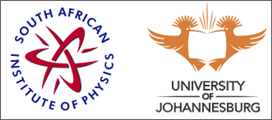Speaker
Would you like to <br> submit a short paper <br> for the Conference <br> Proceedings (Yes / No)?
yes
Abstract content <br> (Max 300 words)<br><a href="http://events.saip.org.za/getFile.py/access?resId=0&materialId=0&confId=34" target="_blank">Formatting &<br>Special chars</a>
Students’ success in physics courses depends in part on their beliefs and assumptions about physics and about learning physics. This investigation explored the opinions of first year students enrolled in three physics service courses at a local university: a course for engineers (n = 416), a course for medics (n= 189) and a course intended for other students not wishing to continue with physics (n= 230). The response rate was 84 % overall. The survey instrument was a modified version of the Maryland Physics Expectations survey , a Likert-scale (agree–disagree) survey [1]. 20 of the original 34 items were used (with appropriate modifications of the language) plus a further ten items derived from a previous local study. Although the majority of students exhibited views regarded as favourable by their lecturers, a significant number expressed beliefs which may be counter-productive to effective learning in physics. For example, 36 % of the sample agreed with the statement “If the physics lecturer gives really clear lectures, then most students can learn physics without doing lots of practice problems on their own.” There are also interesting similarities and differences between the different cohorts. These results were compared with those of successful mainstream physics students. The instrument was also used with students at the start of the second year physics course (n=26). A limitation of the results of this study is that students are likely to report their beliefs more favourably than their learning practices attest.
[1] Redish, E. F., Saul, J. M., & Steinberg, R. N. (1998). Student expectations in introductory physics. American Journal of Physics, 66(3), 212-224.
Level for award<br> (Hons, MSc, <br> PhD)?
n/a
Apply to be<br> considered for a student <br> award (Yes / No)?
no

